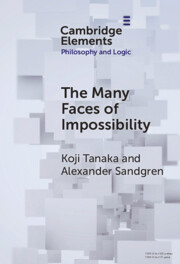In this paper, I develop an algorithmic impossible-worlds model of belief and knowledge that provides a middle ground between models that entail that everyone is logically omniscient and those that are compatible with even the most egregious kinds of logical incompetence. In outline, the model entails that an agent believes (knows)  $\phi $ just in case she can easily (and correctly) compute that
$\phi $ just in case she can easily (and correctly) compute that  $\phi $ is true and thus has the capacity to make her actions depend on whether
$\phi $ is true and thus has the capacity to make her actions depend on whether  $\phi $. The model thereby captures the standard view that belief and knowledge ground are constitutively connected to dispositions to act. As I explain, the model improves upon standard algorithmic models developed by Parikh, Halpern, Moses, Vardi, and Duc, among other ways, by integrating them into an impossible-worlds framework. The model also avoids some important disadvantages of recent candidate middle-ground models based on dynamic epistemic logic or step logic, and it can subsume their most important advantages.
$\phi $. The model thereby captures the standard view that belief and knowledge ground are constitutively connected to dispositions to act. As I explain, the model improves upon standard algorithmic models developed by Parikh, Halpern, Moses, Vardi, and Duc, among other ways, by integrating them into an impossible-worlds framework. The model also avoids some important disadvantages of recent candidate middle-ground models based on dynamic epistemic logic or step logic, and it can subsume their most important advantages.





